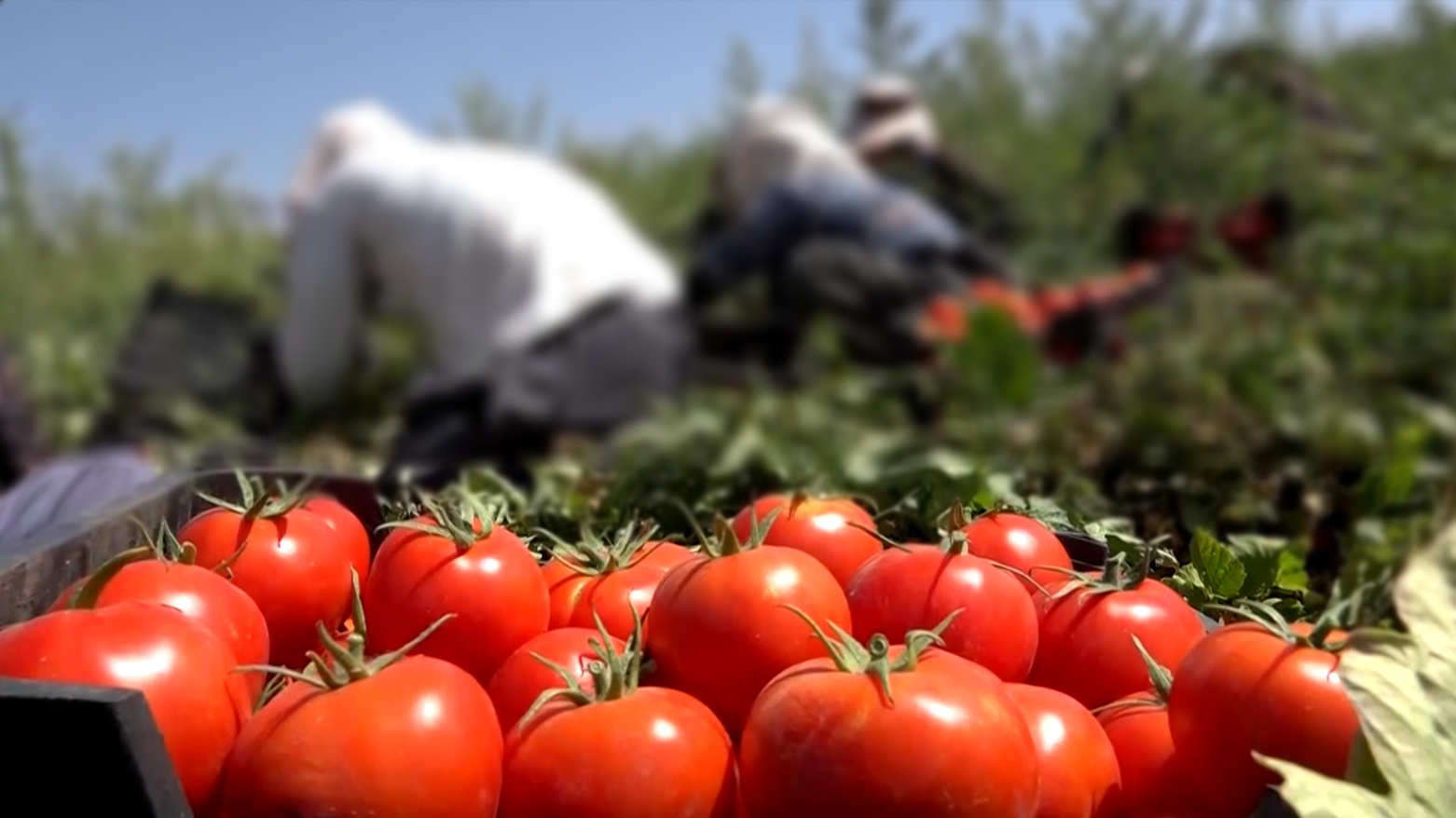Tomato Harvest Season in Eastern Kurdistan Creates 30,000 Jobs
Tomato harvest in Eastern Kurdistan creates 30,000 seasonal jobs, officials say. Kamyaran alone expects over 100,000 tons from 1,200 hectares. The yield supports both domestic use and export, vital for local incomes.

ERBIL (Kurdistan24) – The tomato harvest season has begun in Eastern Kurdistan, generating employment opportunities for nearly 30,000 people across the region. In Kamyaran, a city in Sanadaj (Known in Kurdish as Sine) province, farmers have started gathering this year’s crop with expectations of high-quality yields thanks to the use of advanced drip irrigation and biological methods for pest control instead of chemical substances.
Ardashir Minbari, one of the local farmers, explained to Kurdistan24, that he usually cultivates between 10 to 15 hectares of land annually with tomatoes, but this year he has planted eight hectares. “From each hectare, we expect between 100 to 150 tons of industrial-use tomatoes and 100 to 120 tons of fresh produce for the market,” he said.
According to official figures, 1,200 hectares of land in Kamyaran have been cultivated with tomatoes this season, with projections of more than 100,000 tons in total yield. Kamyaran alone provides nearly half of the tomato production for Sine province.
Kamal Rostami, head of Kamyaran’s Agricultural Jihad Department, told Kurdistan24, that the average output per hectare stands at around 80 tons.
The season, which begins in mid-summer and lasts about a month, has already created jobs for approximately 5,000 people in Kamyaran.
For many local families, the harvest season is a crucial source of income. Bahareh Zeynolabedini, one of the workers, said she supports her family through seasonal employment. “I work during this harvest with my school-aged children to cover our living expenses,” she shared with Kurdistan24.
Across Eastern Kurdistan as a whole, around 30,000 people are expected to be employed during the tomato harvest, reflecting the sector’s central role in sustaining rural livelihoods.
This year, production across the provinces of Urmiya, Sine, and Kermashan is forecast to exceed 600,000 tons of tomatoes. A portion of this output will supply domestic consumption, while surplus produce is designated for export.
The reliance on modern farming methods and the scale of cultivation underline the economic and social importance of tomato production for Eastern Kurdistan, both in terms of employment and food security.
